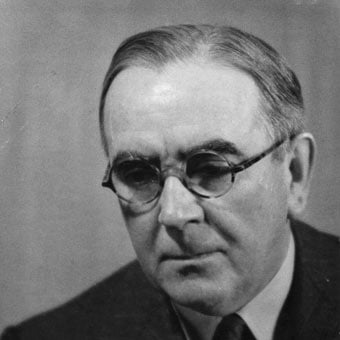
John Ireland
John Ireland studied piano with Frederick Cliffe and composition with Stanford at the Royal College of Music in London, where he himself taught between 1923 and 1939, his pupils including Britten, Bush, Moeran and Searle * Worked as organist and choirmaster at St Luke's Chelsea between 1904 and 1926, while developing his career as a composer * Early successes with piano works and chamber music, culminating in the landmark Violin Sonata No.2 (1915-17) * By 1920 regarded as one of the leading English composers of his generation * Brahmsian style of youth gives way to influence of Debussy, Ravel and Stravinsky, later combined with Elgarian lyricism * Inspiration from landscapes such as the Thames in London, Sussex Downs or Channel Islands, and pagan mysticism in writings of Arthur Machen * Popular choral works include the cantata These things shall be, the anthem Greater Love hath no Man, and the hymn My Song is Love Unknown * Last major work was film score for The Overlanders (1946-47) - a suite was extracted posthumously by Sir Charles Mackerras
Works by John Ireland include:
String Quartets Nos.1 and 2 (1895 / 1897)
These things shall be (1936-37) for baritone, chorus and orchestra
A London Overture (1936) for orchestra
Concertino Pastorale (1939) for string orchestra
"When will the world of music reawaken to John Ireland? ...glorious, expansive, Romantic works, brimming with memorable melodies." — BBC Music Magazine
